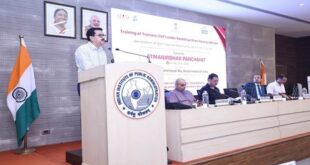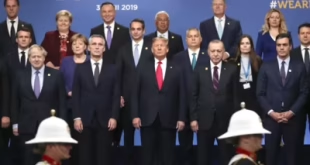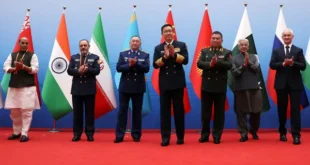- Bench says it will examine ‘veiled intentions’ behind religious conversions through allurement by offering food, medicines, treatment; purpose of charity should not be conversion, it adds
- The Supreme Court on Monday said acts of charity or good work to help a community or the poor should not cloak an intention to convert them religiously as payback.
- A Bench, led by Justice M.R. Shah, said conversion on the basis of a voluntarily felt belief in the deity of a different faith was different from belief gained through allurement.
- The court said it would examine such veiled intentions behind religious conversions through allurement by offering food, medicines, treatment and so on.
- The court posted for final hearing on December 12 the “very serious issue” of forcible or deceitful conversions in the country. “We are here for a cause, we are here to find a solution,” it said.
- “Everybody has a right to choose their faith but that does not mean luring somebody by giving something. If you believe that a particular community needs help, you help it. It is charity. But the purpose of charity should not be conversion. Every charity or good work is welcome, but what requires to be considered is the intention… Charity, help, everything is welcome, but within the framework. The intention should be very clear. That is what we will consider,” Justice Shah said. “When everybody is India, they have to act as per the culture of India,” he noted.
- Justice C.T. Ravikumar, the Associate Judge on the Bench, said that “this is required for the harmony of India”.
- When senior advocate Sanjay Hegde said people could choose to renounce their faith for various reasons, Justice Shah said “belief is a different thing… Belief by allurement, that is very dangerous”.
- At this point, Solicitor-General Tushar Mehta, for the Centre, said it was therefore that a “statutory mechanism” was in place. “A neutral authority will decide whether it is in lieu of grains, medicines, treatment offered that a person is converting or whether there is a religious or philosophical change of heart,” he said.
SC offers to find solution to ‘deceitful conversion’
- The apex court had in the past upheld statutes that monitored or controlled religious conversions. “They can argue that right to convert is a fundamental right but I will oppose it,” the top law officer said.
- Senior advocate C.U. Singh, representing the Kerala YukthivaadSangham, a rationalist and secular organisation, objected to the court entertaining a petition by advocate Ashwini Kumar Upadhyay.
- Singh said Mr. Upadhyay had filed the same petition thrice before and they were withdrawn without liberty. Senior advocate Raju Ramachandran, for a priest, also opposed Mr. Upadhyay on the ground of maintainability.
- “Don’t take this as adversarial or for other purposes. This is a very serious issue. Ultimately, it is against the basic principles of our Constitution…
- We are at the stage of final hearing and make it clear that we will not enter into the question of maintainability of the petition.
- Your objections are rejected,” Justice Shah told Mr. Singh, while passing on printed material and photographs of what were allegedly forcible or deceitful religious conversions. The court directed the Centre to provide details of anti-conversion laws in various States and other materials.
SOURCE: THE HINDU, THE ECONOMIC TIMES, PIB
 Chinmaya IAS Academy – Current Affairs Chinmaya IAS Academy – Current Affairs
Chinmaya IAS Academy – Current Affairs Chinmaya IAS Academy – Current Affairs



